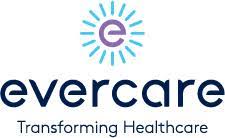Essential tests a woman should take annually
Dr. Aparna Dhar, Lead Medical Geneticist and Genetic Counselor, CORE Diagnostics While, carrying the burden of various roles and their responsibilities – daughter, sister, wife and mother – women a lot of time forget to take
Dr. Aparna Dhar, Lead Medical Geneticist and Genetic Counselor, CORE Diagnostics
While, carrying the burden of various roles and their responsibilities – daughter, sister, wife and mother – women a lot of time forget to take care of themselves which at times results in serious medical issues. In some cases, the disease is unpreventable, however, for many of these cases, the situation could have been prevented if the disease was diagnosed at an earlier stage.
Therefore, there is a dire need to raise awareness about the importance of ‘early diagnosis’ and ‘top diagnostic tests women should definitely undertake annually’ for better and healthier future.
Top diagnostic tests that women must take regularly:
- Pap Smear:
A pap smear looks for signs of cervical cancer to help catch it at an early stage. It looks for precancerous or cancerous cells on your cervix.
Women, starting from the age of 21, should have a Pap smear test done every three years. The interval can be increased as you grow older and have a normal Pap test consecutively.
Procedure: During the procedure, cells from your cervix are gently scraped away and examined for abnormal growth. The procedure is done at your doctor’s office. It may be mildly uncomfortable but doesn’t usually cause any long-term pain.
- Breast Cancer Screening:
Breast Cancer screening includes self-breast exams, mammograms, breast MRIs and X-rays. It looks for signs of breast cancer to diagnose it an early stage.
It is recommended that every woman goes for annual mammograms after the age of 40. Mammography is the process of using low-energy X-rays to examine the human breast for detection of masses.
For women, with a strong family history of breast cancer or an increased risk of breast cancer due to a genetic mutation, should start with annual mammograms and breast MRI scans at the age of 30.
A breast self-examination is a way to screen for lumps or any changes in breast to screen for breast cancer at home. You can use your eyes and hands to determine if there are any changes to the look and feel of your breasts.
Every woman can start with breast self-exam at an age of 25 and go for an MRI if you notice something unusual.
- Cholesterol Check:
A lipid profile test measures level of cholesterol and triglycerides. It helps in assessing your heart disease risk.
After the age of 20, every woman should get tested every 3-5 years. For women with an increased risk of developing a heart disease, or have diabetes, should get tested annually.
It consists of blood test which measures levels of HDL, LDL, Total Cholesterol and Triglycerides.
In case of high cholesterol/triglycerides levels, you should consult a doctor and consider a change in diet and exercise regime.
- Blood Glucose Test:
Starting at the age of 45, women should get a blood glucose test every 3 years. It is used to check the level of glucose (sugar) in your blood. Elevated blood sugar levels indicate that the body is not making sufficient amount of insulin. It can be an indication of diabetes or prediabetes.
For women with a family history of diabetes, or obesity, should start testing blood sugar levels at an early age, and more frequently.
A blood testing for fasting glucose level test or HbA1c could be done. For a fasting blood glucose test, you can’t eat or drink anything but water for eight hours before your test.
Whereas, HbA1c looks for an average of your blood sugar over the last three months and does not require fasting.
If you’re in the borderline, prediabetes, lifestyle changes can prevent you from progressing to diabetes. Eating a healthy diet, losing weight, and regular exercise can decrease your risk of getting type 2 diabetes.
- TSH (Thyroid-stimulating hormone) and T4 test:
The thyroid is a gland in the neck that produces hormones that regulate metabolism. Women are more likely than men to have an underactive thyroid gland (hypothyroidism) or overactive thyroid gland (hyperthyroidism).
The TSH and T4 tests is a blood test which measures hormone levels to make sure your thyroid is working correctly.
Women after the age of 60, should regularly test for TSH and T4 levels. If there are symptoms like fatigue, muscle weakness, weight gain/loss etc., a test should be done at an earlier stage.
The test result could indicate normal, hypothyroidism (insufficient thyroid hormones), or hyperthyroidism (overactive thyroid).
Hypothyroidism is treated with synthetic thyroid hormone taken daily by mouth. Hyperthyroidism is treated with radioactive iodine, anti-thyroid medicine, or surgery.





